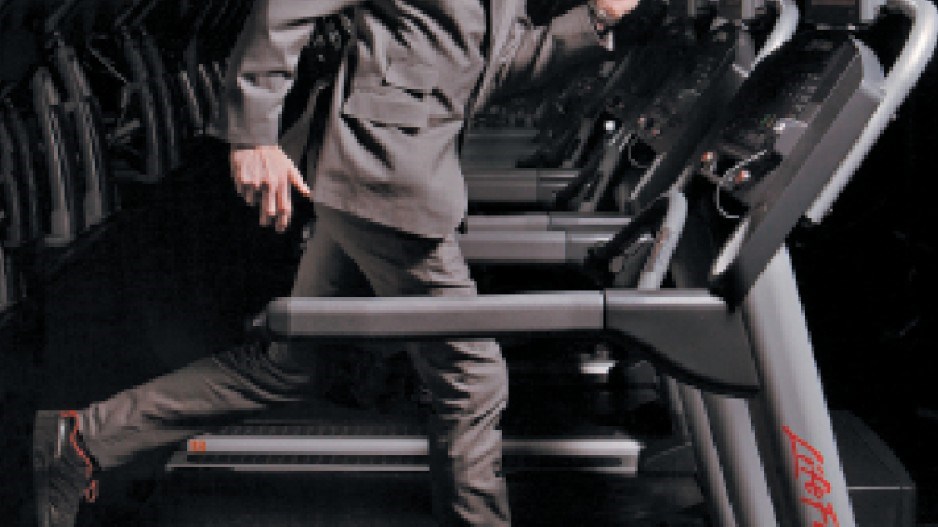Entrepreneurs in the men’s suit-selling trade are embracing a business model that focuses on direct-to-consumer service and eliminates permanent storefronts.
Vancouver entrepreneur Dimitry Toukhcher launched LGFG Fashion House in 2010 and focused what is now a $3 million annual concern on providing high-end, custom-made suits to busy executives.
The 30-year-old’s company has three Vancouver employees who visit clients’ offices to take measurements and provide material swatches so customers can touch, feel and compare fabric.
Toukhcher has no storefronts, but he has expanded his operation to include approximately 30 staff in 11 Canadian cities as well as in Buffalo, New York, and Paris, France. He now sells up to 250 suits per month at an average price of more than $1,000.
“We have aspirations to be worldwide,” said Toukhcher.
Trevor Linden, Vancouver Canucks legend and Linden Capital principal, is an LGFG Fashion House client.
“They bent over backwards to make sure I was happy,” Linden told Business in Vancouver. “They came to my office and made several trips back to do some final changes and alterations.”
Linden’s main business now is managing real estate investments, organizing public speaking engagements and overseeing his three-location Club 16 Trevor Linden Fitness gym chain.
Linden shops online and has been featured in advertising for Vancouver eyewear e-commerce company Clearly Contacts, but he has yet to buy a suit that way.
Vancouver-based Indochino pioneered online suit-selling in 2007, and its founders Kyle Vucko and Heikal Gani have since attracted deep-pocketed investors and increased annual revenue into the tens of millions of dollars.
Sales double each year, and the company recently moved 45 Vancouver staff into a larger office in Vancouver’s Railtown neighbourhood, east of the Downtown Eastside.
Competitors, such as Knot Standard, have since entered the market, but retail analysts such as Dig360 CEO David Gray say Indochino has an inherent advantage because it came first and has sufficient capital to spend on marketing and technology upgrades.
Indochino’s investors include former Yahoo Inc. president Jeff Mallett.
Staples Inc. (SPLS:Nasdaq) co-founder Tom Stemberg and his Highland Capital Partners pumped $13 million into Indochino earlier this year. Stemberg now sits on the company’s board of directors.
Gray added that Indochino’s business is easier to scale because, unlike LGFG Fashion House, it doesn’t require staff in each city where it operates.
And, while Toukhcher criticizes the Indochino business model because of potential errors caused by customers attempting to measure themselves, Indochino has been increasing its pop-up stores – temporary storefronts where customers book appointments to be measured by an on-site Indochino tailor.
Vucko, Indochino’s CEO, said the company will operate 10 pop-up stores in 2013. Last year it had four.
The pop-up stores are part of Indochino’s strategy to be the first online clothier to offer mass-customized products.
“It’s relatively easy to start this business,” Vucko said, “but it’s very hard to grow it.”




